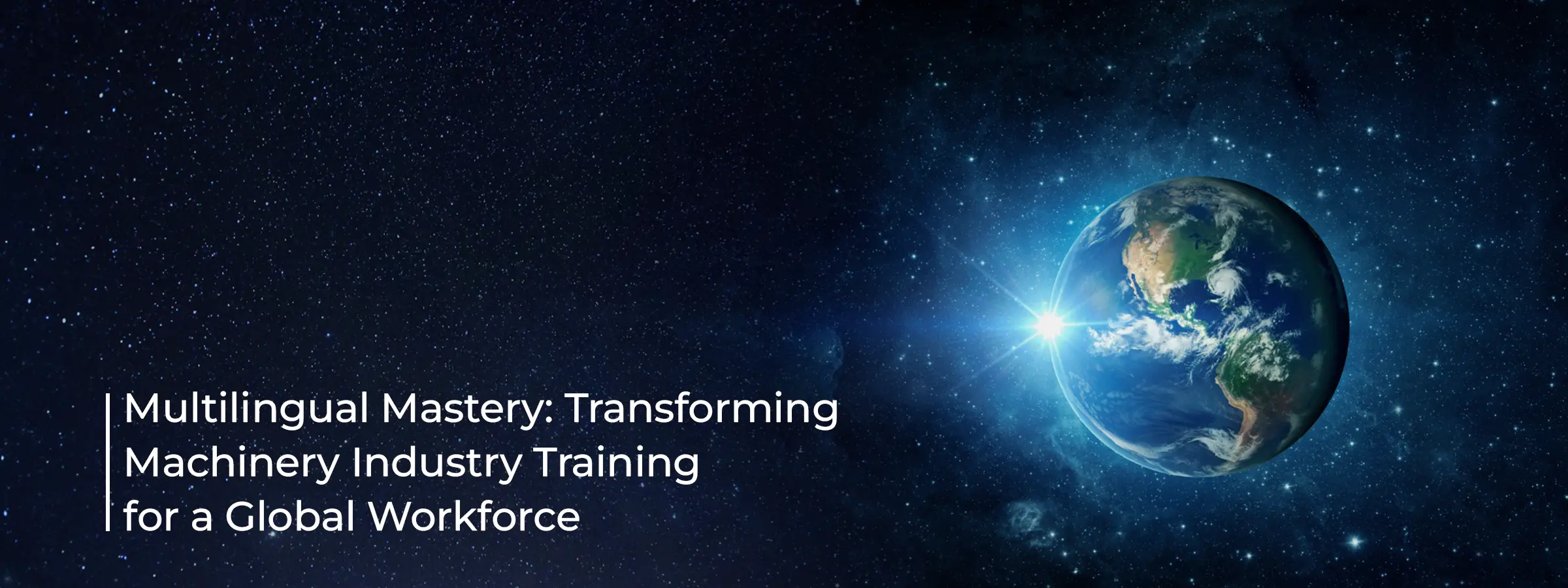
In the machinery industry's sprawling landscape, progress is increasingly dictated by the ability to adapt, innovate, and educate. As companies expand their horizons across borders, the task of training a diverse, global workforce emerges as a formidable challenge that demands more than traditional approaches. Enter the era of multilingual mastery, a transformative strategy that leverages language services to enhance learning and development (L&D) initiatives. This blog post explores how embracing multilingual training programs can revolutionise workforce education in the machinery industry, ensuring that every employee, regardless of linguistic background, is equipped for success.
With its intricate technologies and complex operational procedures, the machinery industry requires a highly skilled workforce to maintain its momentum of innovation and efficiency. However, as companies extend their operations globally, they encounter a rich tapestry of cultures and languages, making effective training a logistical labyrinth. The solution? A multilingual approach to training that acknowledges and bridges language gaps, ensuring that all employees have equal access to vital knowledge and skills.
Language barriers can significantly hinder the effectiveness of training programs, leading to misinterpretations, safety risks, and decreased productivity. By incorporating professional translation and localisation services into training materials, companies can create accessible learning content that resonates with employees across linguistic divides. This includes everything from safety manuals and operational guides to e-learning modules and instructional videos, all adapted to meet diverse audiences' linguistic and cultural nuances.
The impact of training is measured not just by the delivery of information but by how well this information is understood, retained, and applied. Multilingual training materials tailored to the learner's native language significantly enhance comprehension, engagement, and retention. Interactive e-learning platforms, augmented with real-time translation capabilities, further enrich the learning experience, making it more dynamic and effective for a global audience.
Adopting a multilingual approach to workforce training underscores a company's commitment to inclusivity and equality. It sends a powerful message to employees that their development and safety are paramount, regardless of where they come from or their language. This boosts morale and loyalty and cultivates a workplace culture that values diversity and mutual respect.
Adhering to international safety and operational standards is non-negotiable for the machinery industry. Multilingual training programs ensure compliance is maintained across different regions, reducing the risk of costly violations and reinforcing a company's reputation for reliability and safety. Language services play a crucial role in translating and localising compliance-related content, making it accessible and actionable for every employee.
Advancements in language technologies offer scalable solutions to the challenge of multilingual training. AI-driven translation tools, speech recognition software, and virtual reality (VR) environments provide immersive and interactive learning experiences in multiple languages. These technologies streamline the creation of multilingual training content and make it more engaging and memorable for learners.
In the rapidly evolving machinery industry, mastering multiple languages in training programs is no longer a luxury—it's a necessity. By transforming learning and development initiatives with a multilingual approach, companies can ensure that their global workforce is skilled, informed, and aligned with the organisation's goals and values. Multilingual mastery in training breaks down language barriers and builds bridges to a more inclusive, educated, and efficient workforce ready to meet the challenges of tomorrow.
© 2024 WHITE GLOBE GROUP PVT LTD